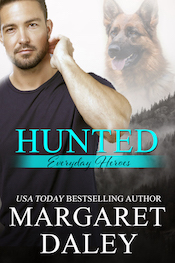This week I’m hosting Alison Strobel with The Heart of Memory and Shawna Williams with In All Things, and Roxanne Rustand with Murder at Granite Falls. If you want to enter the drawings, please leave a comment on one of the post during the week with your email address. I will not enter you without an email address (my way to contact you if you win). If you don’t want to leave an email address, another way you can enter is to email me at margaretdaley@gmail.com. The drawings end Sunday (April 17th) evening.
Interview with Alison Strobel:
1. What made you start writing?
I think it was genetics, honestly! I started writing stories as soon as I figured out how to write my letters. Writing stories is just something I’ve always done. When I wrote my first novel, it wasn’t out of some desire to be published—I’d seen my dad struggle for years to get his break in publishing and knew my chances of publication were slim—I wrote it because, like always, I had an idea for a story and wanted to write it to see how it turned out.
2. How long have you been writing? When did you sell your first book?
I started trying to write my first novel back in 1999. It didn’t work. In 2000 I tried again, and the result was Worlds Collide. It took me18 months to complete, and a few months later God brought Dudley Delffs, an editor from Waterbrook, across my path, and two months after that I had my first contract.
3. How do you handle rejections?
First I pout. Then I stew for a few days. Then I get over it and work on the project to try to make it better.
4. Why do you write?
Because God has made me a writer. At a cellular level, it’s who I am. I write scenes in my head as I go about my day. I craft conversations between myself and imaginary people (sometimes real people) in my head when I’m bored. It’s almost a compulsion. If I didn’t have contracts, I’d still write in one way or another.
5. What would you be doing with your free time if you weren’t writing?
Crocheting more! It’s my second favorite thing to do beside writing. I started a little over a year ago and am—forgive the pun—completely hooked. I have a list a mile long on Ravelry.com of projects I want to make. (If you’re over there, come friend me! I’m Novelmama. )
6. What are you working on right now?
Right now I’m working on the marketing for my March 29 release, The Heart of Memory, and my April 1 release, That’s When I Talk To God, which is the second children’s book my husband and I have co-authored. After that’s done I’ll be working on proposals for some new books. I’ve got a few ideas but only one of them has been fleshed out much—it’s actually going to be pitched to the ABA (general, as opposed to Christian) market. My husband and I have some more kids’ stuff in the works as well.
7. Do you put yourself into your books/characters?
Not as much now as I used to, but there are always pieces of me in them somewhere, either in little things like their favorite foods or activities, or in how they handle a particular situation.
8. Tell us about the book you have out right now.
The Heart of Memory is about a popular, nationally-known speaker and writer—a Beth Moore-type person—who finds herself becoming an atheist against her will after a heart transplant. The book examines the dichotomy between approaching our faith through emotion versus through logic. It’s an idea I got years ago, before Worlds Collide was even contracted, so it’s cool to see it finally in print!
9. Do you have any advice for other writers?
Read, read, read (quality stuff) and write, write, write (whatever comes out). If all you do is write, then you’re not filling your creative well—and you can’t expect to get anything from an empty well! And if all you do is read, then you’re never going to produce anything! Oh, and find quality instruction at writer’s conferences. My favorite is the ACFW conference that happens every September. They sell MP3’s of the sessions a couple months after the conference, which are perfect for folks (like me) who can’t get to conferences because of family or financial restraints.
10. How important is faith in your books?
Faith matters are at the heart of all my books. Even my ABA attempt has faith at its center. I can’t not write about faith. Just as I’m a writer to my core, I’m also a Christian to my core, and I can’t write apart from my beliefs.
11. What themes do you like to write about?
I’ll be honest, I don’t think about the themes of my books. God brings the ideas to me and guides my writing, and when I’m done I look at it and go, “Oh hey! It’s a book about ______!” Sometimes I don’t even see the themes until reviews start coming in for it and reviewers say things like, “This is a powerful book about redemption.” Then I’m like, “It is?! Cool!”
12. What is your favorite book you’ve written and why?
The Weight of Shadows is my favorite so far. First, because my writing was so much better than in my first two books—I’d taken a little time off from writing and had done some studying and learning about the craft, and it definitely shows. Second, because it was a much more complex story than the first two had been. And third, because I’d been mulling over the story for a few years before actually starting to write it, and when I did the story just flowed. It was by far the best time I’d had writing, and it remains the easiest book I’ve written, and most enjoyable book to write, so far.
13. What is your writing schedule like?
My husband and I both work from home and have developed a tag-team system that allows us to take care of our girls and write. My writing happens in the afternoon, after I’ve gotten our younger down for her nap and our older fed with lunch, and I write until dinnertime. That happens four days a week. Weekends are kept writing free for both of us, as much as possible, and Wednesdays my husband gets the whole day to himself and the girls and I attend a local homeschooling co-op.
When I’m in my office, I usually start with administrative stuff—answering email, answering interview questions, marketing stuff, packaging things to be mailed, tweeting and updating on Facebook and the like—and then I write the rest of the time with breaks here and there for email and social networking.
When I’m starting a new project, I use Randy Ingermanson’s Snowflake Method to outline the story. Once that’s completed, I do all the research I realized through that process that I’d need to do. Then I write the rough draft in Scrivener, which is a fantastic piece of software for writers of any kind. When my schedule permits, I take a month off after I finish the rough draft, and then come back to it, print it out, and edit it on hard copy since I miss so many mistakes when reading on the computer. Then I enter the changes on the computer version and turn it in to my editor—then wait with bated breath to hear what she thinks!




